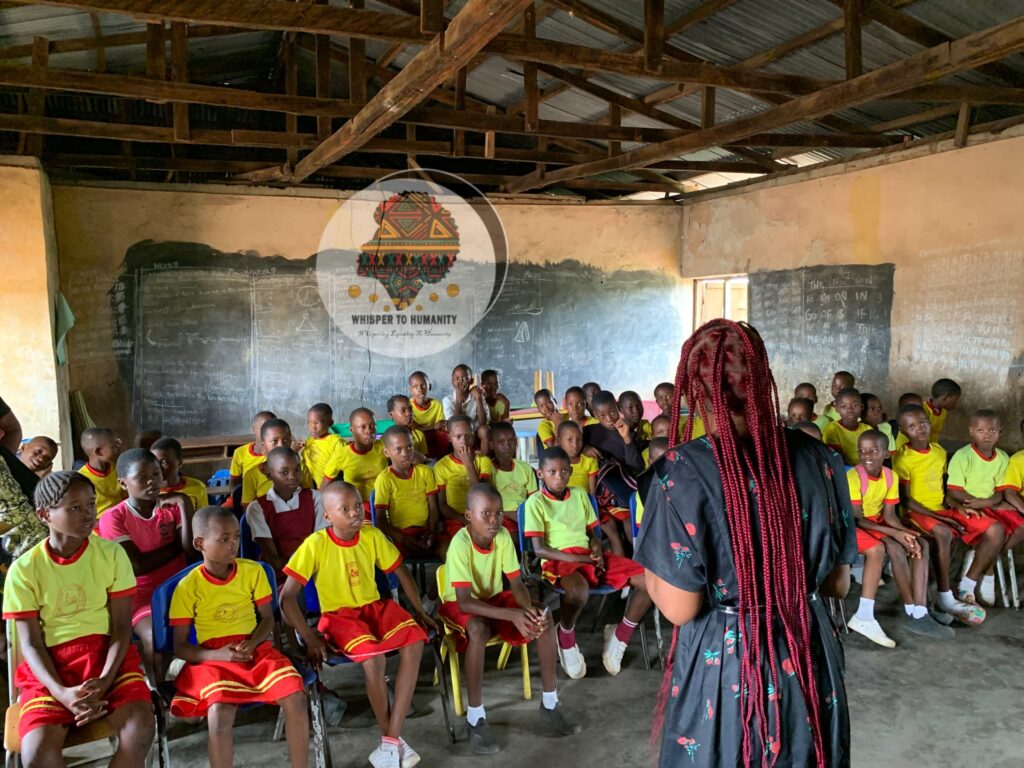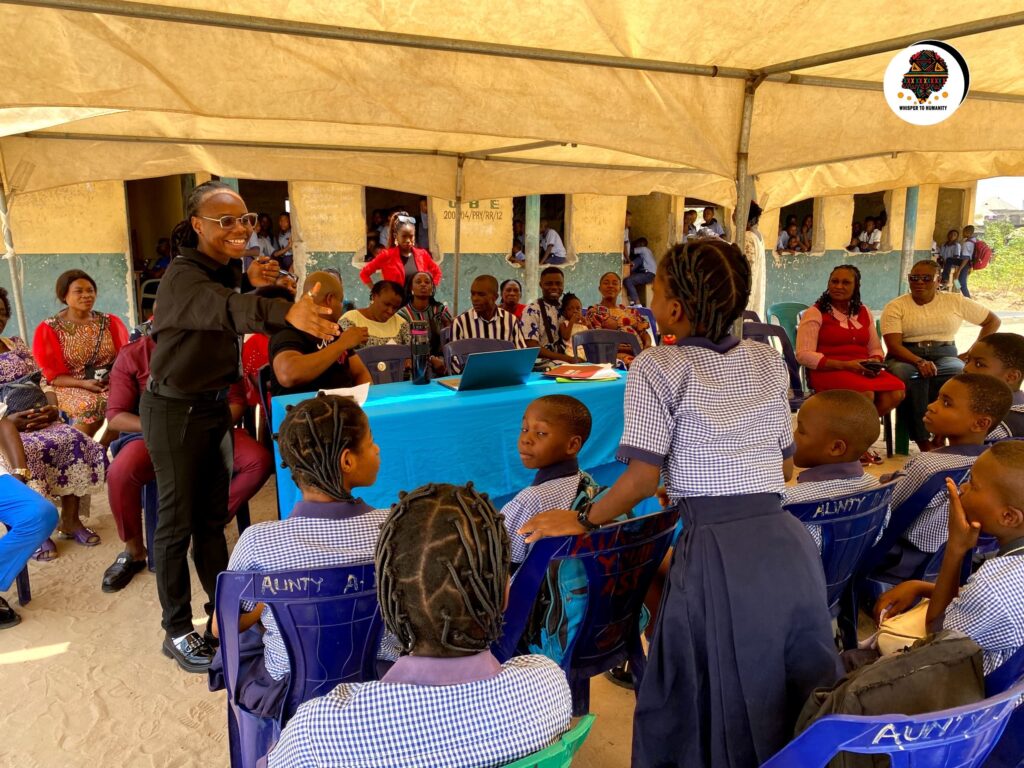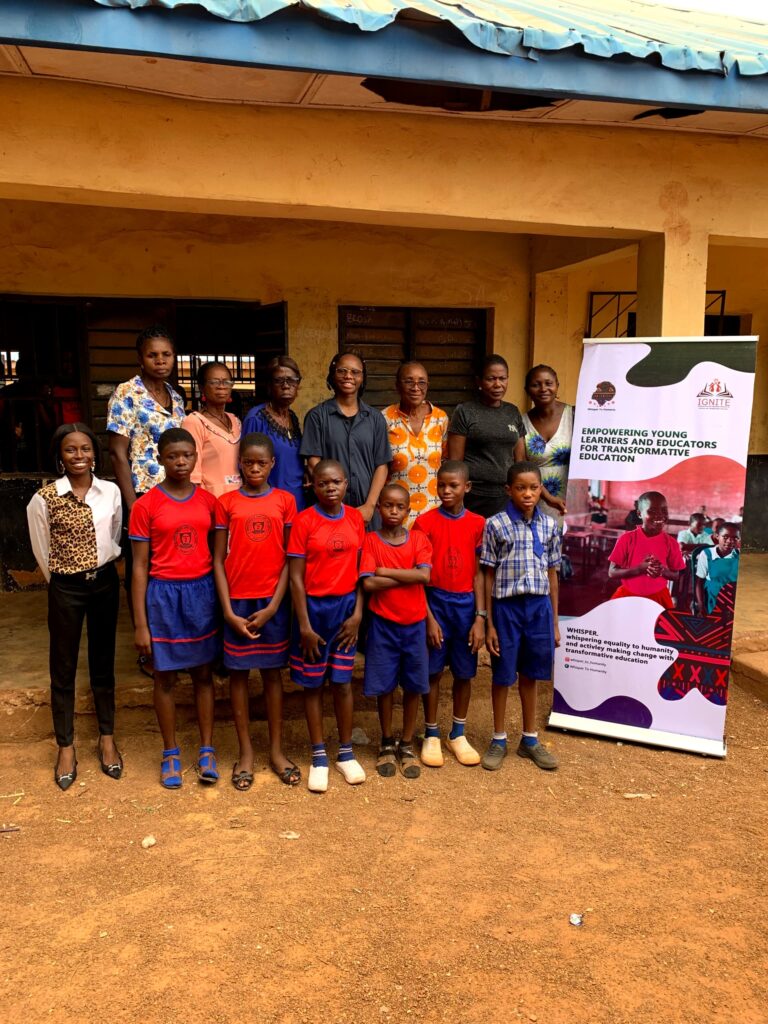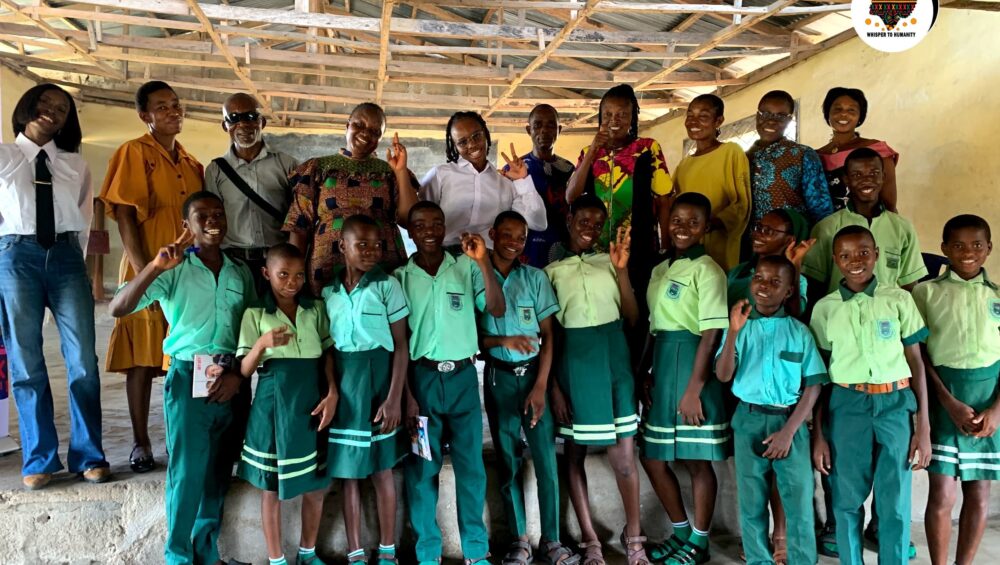In a bold move to redefine the future of education for children in Nigeria, Whisper to Humanity has launched the Transformative Education for Young Learners and Educators project, reaching over 30 communities across Imo, Ebonyi, Cross River, and Delta States since September 2024. With adolescent girls at the heart of the movement, the project aims to dismantle systemic barriers rooted in family, community, and government structures, while creating inclusive and inspiring learning environments for both learners and educators.
The initiative is driven by the belief that long-term educational reform must be community-led, inclusive, and student-centered. At its core, the project empowers both students and teachers through capacity-building workshops. In Imo and Ebonyi States, three-day residential training sessions brought together students and their supervising teachers in state capitals to explore advocacy tools and playful learning methods—an approach that reimagines education as joyful discovery rather than obligation. Participants engaged in brainstorming exercises to imagine their ideal schools and candidly confronted the cultural, infrastructural, and systemic barriers preventing that vision. The sessions not only shifted perceptions but lit a fire of self-belief in students who began to see themselves not as passive recipients of knowledge but as catalysts for change.

Upon returning to their schools, these students and teachers assumed the role of ambassadors, initiating peer-to-peer learning and sparking a ripple effect within their communities. They challenged norms, held conversations around education reform, and encouraged others to embrace a culture of continuous learning and shared ownership. This organic, bottom-up approach began to reshape not just schools, but community attitudes towards education.
Recognizing that transformation must include every voice, Whisper to Humanity facilitated strategic dialogues with Parent-Teacher Associations and student bodies in all 30 communities. These sessions, using tools like the problem tree methodology, enabled participants to collectively identify and understand the root causes of poor learning environments. Each meeting culminated in a state-specific Needs Assessment Report that captured local realities and formed the foundation for co-created action plans. These grassroots strategies included mobilizing community support and engaging education authorities—laying the groundwork for sustainable reforms driven by those most affected.
One of the early triumphs of the project came during a community engagement held at Dr. Okoi Arikpo Memorial School in Cross River State. Students—particularly adolescent girls—took the lead, presenting key challenges and unveiling solutions created with their peers. Inspired by their conviction, the community crowdfunded to begin constructing an examination hall for the school, marking a powerful testament to local ownership and collective action. Similar engagements are ongoing across the project states, drawing in traditional rulers, community leaders, and parents to co-create safer and more empowering school environments.

In a bid to amplify youth voices even further, Whisper to Humanity introduced a weekly 30-minute student-led radio show, giving students—especially girls—a powerful platform to discuss issues ranging from gender-based discrimination to infrastructure deficits, mental health, and school governance. The radio sessions are fully student-managed, from scripting to presentation, allowing them to take full ownership of their advocacy. Beyond awareness, the program has become a powerful instrument of social accountability, youth agency, and intergenerational dialogue that is pushing communities to reimagine education through the eyes of those it serves.

One of the standout moments in the project so far was the presentation of a position paper to the Commissioner of Education in Ebonyi State, Professor Paul Awo Nwaobasi. The document, co-authored by students and teachers, highlighted pressing challenges facing the education system in the state. In response, the commissioner made commitments including the employment of over 2,000 teachers, renovation of school buildings, and the construction of SMART classrooms—showing the tangible policy impact student-led advocacy can achieve.
The project also features the creation of playstations in participating schools. These spaces, filled with educational games such as Whisperer (focused on financial literacy), chess, and Scrabble, serve as hubs of experiential learning, creativity, and cross-school exchange. Designed and managed by the children themselves, the playstations reinforce the project’s goal of child-led transformation, encouraging curiosity, peer learning, and leadership in educational reform.
From radio airwaves to policy tables, and from school playgrounds to community halls, Whisper to Humanity’s Transformative Education for Young Learners and Educators project is proving that when young people are given the tools, the platform, and the belief in their potential, they will lead. They will challenge themselves. They will change their world.





